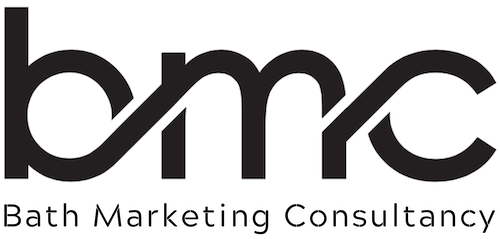Introduction
As a marketing consultant specialising in search engine optimization (SEO), I understand the significance of reciprocal links in enhancing your website’s online presence. In this article, I’ll explore the concept of reciprocal links, their importance for SEO, and how they can contribute to improving your website’s visibility in search engine rankings.
Understanding Reciprocal Links
Reciprocal links, also known as link exchanges, occur when two websites mutually agree to link to each other. This arrangement is typically established to benefit both websites by increasing their respective traffic and visibility. It’s vitally important to note that reciprocal links should be relevant and of high quality to be effective. For example, linking to a site as a reference from a blog post rather than a simple, back scratching you link to me and I’ll link to you.
Enhancing SEO through Reciprocal Links
- Increasing Website Visibility: By engaging in reciprocal linking, you can expand your website’s reach and visibility on the internet. When other reputable websites link to yours, search engines recognize these backlinks as votes of confidence and relevance. This, in turn, can positively impact your website’s authority and rankings in search engine results pages (SERPs).
- Attracting Targeted Traffic: Reciprocal links enable you to tap into the existing audience of your partner websites. When users visit the other website and come across a link to your site, they may be enticed to click and explore what you have to offer. This targeted traffic can lead to increased conversions, whether it’s in the form of sales, sign-ups, or engagement with your content.
- Building Relationships and Trust: Engaging in reciprocal linking can foster mutually beneficial relationships with other website owners or businesses within your niche. By establishing connections, you can collaborate on future projects, share resources, and leverage each other’s expertise. Additionally, these relationships can contribute to building trust and credibility, which are crucial factors for search engines when determining the quality and authority of a website.
Best Practices for Reciprocal Linking
- Focus on Relevance and Quality: When seeking reciprocal link partnerships, prioritize websites that are relevant to your industry or niche. A link from a relevant source holds more value in the eyes of search engines. Additionally, ensure that the websites you exchange links with have high-quality content, a strong online presence, and a good reputation.
- Diversify Your Link Profile: While reciprocal links can be beneficial, it’s important to maintain a diverse link profile. Don’t solely rely on reciprocal links for your SEO strategy. Aim for a healthy mix of other link building techniques, such as guest blogging, directory submissions, and earning organic backlinks through compelling content.
- Monitor and Update Links: Regularly review your reciprocal link partnerships to ensure they remain active and relevant. Broken or inactive links can negatively impact user experience and SEO. It’s also essential to periodically evaluate the performance of your reciprocal links and assess whether they are driving the desired traffic and conversions.
FAQs
How can linking from related websites improve my site’s search engine visibility?
When relevant websites link back to yours, Google and other search engines view those links as endorsements. If those sites are authoritative or well-trusted, your own perceived credibility increases. That helps your site rank better, especially for more competitive keywords.
Are all reciprocal links equally beneficial for visibility?
No. Benefits depend on several factors: the authority of the partner site, relevance of content, the anchor text used, the context of the link, and ensuring the links are natural rather than forced. Poor quality or spammed reciprocal linking can do more harm than good.
Can reciprocal site visibility help with local businesses (like in Bath)?
Yes, especially for local businesses. If you partner with other local businesses (e.g. Bath based organisations, bloggers, community groups) and they link to your site, this helps with local SEO, reinforces your presence in the area, and can send you local referral traffic and trust signals.
What should I watch out for when setting up reciprocal link partnerships?
Be sure that the content you are exchanging links with is relevant, trustworthy, and high quality. Avoid link schemes, excessive cross-linking with low-quality sites, or any manipulative practices that might violate Google’s guidelines. Transparency and relevance are key.
Besides reciprocal linking, what other methods improve a site’s visibility across networks?
Other strong methods include guest blogging, content syndication, influencer partnerships, social media sharing, mentions in editorial content, use of third-party platforms or directories relevant to your sector or locality, and good content marketing that naturally attracts backlinks.
Conclusion
Reciprocal links can be a valuable asset in your SEO arsenal, helping to boost your website’s visibility, attract targeted traffic, and foster relationships within your industry. By carefully selecting relevant and high-quality partners, diversifying your link profile, and consistently monitoring the effectiveness of your reciprocal links, you can optimise your website’s performance in search engine rankings. Remember, SEO is an ongoing process, so adapt and refine your link building strategies as needed to stay ahead in today’s every changing and challenging digital landscape.



